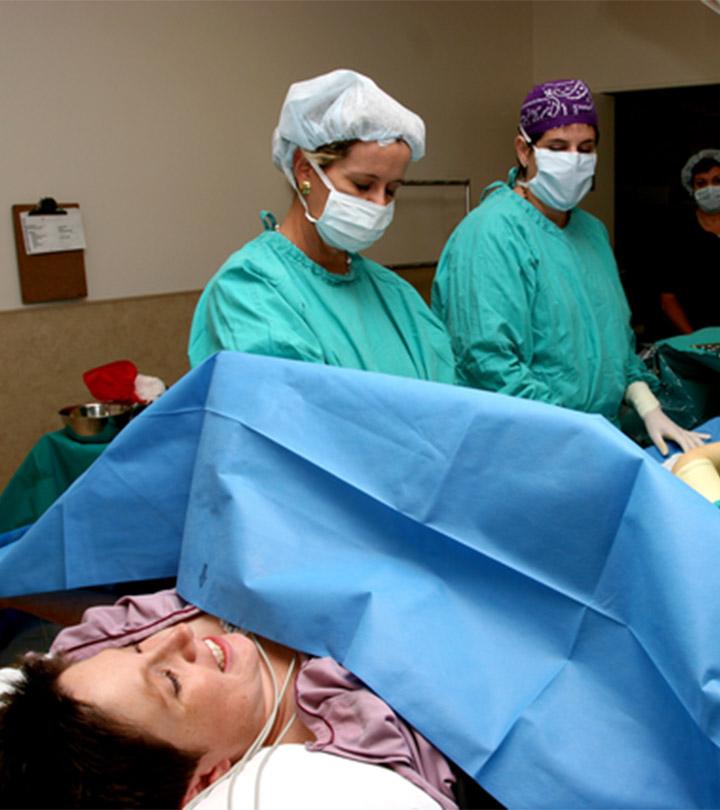
Image: iStock
One of the first things a mother does after childbirth is feed her baby. Breastfeeding is one of the most beautiful experiences of a new mother. It’s an amazing bonding experience for both mother and baby and has several health benefits. While breastfeeding is known for its numerous health benefits, there are tons of myths surrounding it too.
Unlike current times, information was not that easily available in the past. Hearsay and rumors often crept in and got mixed with facts. Parenthood and breastfeeding was always a topic where many myths and misconceptions would find their way into. Surprisingly, even in this age of internet and easy information, many myths still survive and continue to confuse people. Some of them you would have probably heard, while others might be a shocker. Either way, today, we are here to debunk some of them and present you with the truth. Here are nine myths about breastfeeding that you should say goodbye to and embrace the beautiful act that it really is:
Myth One: Breastfeeding Is Easy
Image: IStock
One of the biggest and most blatant myths of breastfeeding is that it’s easy. Well, we are sorry to say that that’s far from the truth. The notion that the moment a mother has her baby in her arms, her instincts guide her to be able to breastfeed perfectly is not always totally true. Sure, some mothers have it easier than others, but that’s not the case for everyone. Breastfeeding takes time, effort, patience, and practice for both mother and baby. It’s also time-intensive and requires a strong support system (1).
Myth Two: It’s Normal For Breastfeeding To Hurt
Image: IStock
How often have you heard that breastfeeding results in sore nipples? Yes, it’s true that you can experience sore and chapped nipples when your baby suckles on them. But it doesn’t mean it always has to happen. With the proper support and positioning of the baby, you can avoid it. There are many ways to alleviate nipple and breast pain either through correct postures or through breastfeeding aides available in the market. Consult your doctor or a lactation expert to overcome the challenges associated with breastfeeding (2).
Myth Three: Wash Your Nipples Before Feeding
Image: Shutterstock
It’s probably a hygiene precaution, but it’s not necessary. Babies are already familiar with their mothers’ smells and sounds. Therefore, you don’t have to wash your nipples before feeding your child. However, you can dab and dry out the extra drops that linger on your nipples after your baby is done feeding.
The exception to this would be if you’re applying products like moisturizers or nipple butters. Many mothers have to apply such products to take care of the dryness from the suckling. The creams and products often contain chemicals which might not be totally safe for your little one. So, make sure to wash them off before feeding your baby.
Myth Four: You Should Only Eat Plain Foods While Breastfeeding
Image: Shutterstock
Babies are already familiar with your taste preferences from the time they are in your womb. Therefore, there is no need to alter your diet. However, you should ensure that you eat a well-balanced diet packed with nutritious goodness suitable for you and your baby. Speak to your doctor and prepare a diet that works best for you (3).
Myth Five: Exercise Alters The Taste Of Your Milk
Image: Shutterstock
There is no scientific evidence that proves that exercise affects the taste of your milk. Medical experts encourage you to exercise after delivery. It helps regulate your moods and aids your pregnancy weight loss. Always consult a doctor before getting started on any exercise routine to know if it’s suitable for you (4).
Myth Six: You Shouldn’t Breastfeed When You’re Sick
Image: IStock
You can absolutely continue to breastfeed when you’re sick. However, if you are on certain medications to get better, consult your doctor to know if breastfeeding is okay. In most cases, the antibodies you build while recovering from your illness are passed on to your baby through breast milk, which helps develop their own defenses (5).
Myth Seven: Breastfed Babies Are Clingy
Image: IStock
One of the most ridiculous myths ever; this one needs to be busted! Every baby is different. Some might be clingy, while some might not. If your baby is clingy, it’s because that’s who they are, not because of what they were fed! Their feeding habits have nothing to do with it. In fact, according to research, breastfeeding increases the bond between mother and child. It also helps build a baby’s immune system and makes them strong for the future (6).
Myth Eight: Weaning A Baby Who Was Breastfed For Over A Year Is Harder
Image: IStock
There’s absolutely no evidence that suggests that it is harder to wean a baby if they were breastfed for more than a year. However, studies have shown that breastfeeding babies for up to two years is extremely beneficial for their well-being. It also helps the mother in several ways. That being said, remember that every baby is different, every mother is different, and it’s up to you to find what works best for your baby and you (7).
Myth Nine: You’ll Have To Wean Your Baby When You Go Back To Work
Image: IStock
Wrong! There are several options available to you to help you continue to breastfeed. One of the most common and convenient ones is pumping. You can express breast milk every two to three hours even when you go back to work so that your baby continues to drink your milk. Pumping milk at regular intervals also ensures that your milk supply does not reduce (8).
There is a lot of information out there about the dos and don’ts of breastfeeding. Pay no heed to them unless they come from credible sources. The best thing to do is to consult a lactation expert and let them guide you through your breastfeeding journey so both you and your baby can reap the benefits! How many of these myths had you heard before? Comment before and let us know!
References
- Common breastfeeding challenges
https://www.womenshealth.gov/breastfeeding/breastfeeding-challenges/common-breastfeeding-challenges - Breastfeeding: Sore Nipples
https://www.mottchildren.org/health-library/hw103462 - Do mothers need more calories while breastfeeding?
https://www.cdc.gov/breastfeeding/breastfeeding-special-circumstances/diet-and-micronutrients/maternal-diet.html - Study finds exercise increases benefits of breast milk for babies
https://www.sciencedaily.com/releases/2020/06/200629120220.htm - Breastfeeding while sick with cold, flu or COVID-19
https://shine365.marshfieldclinic.org/kids-health/breastfeeding-while-sick/ - Breastfeeding and Active Bonding Protects against Children’s Internalizing Behavior Problems
https://www.ncbi.nlm.nih.gov/pmc/articles/PMC3916850/ - Determinants of Continued Breastfeeding at 12 and 24 Months: Results of an Australian Cohort Study
https://www.ncbi.nlm.nih.gov/pmc/articles/PMC6843256/ - Pumping and storing breastmilk
https://www.womenshealth.gov/breastfeeding/pumping-and-storing-breastmilk





















